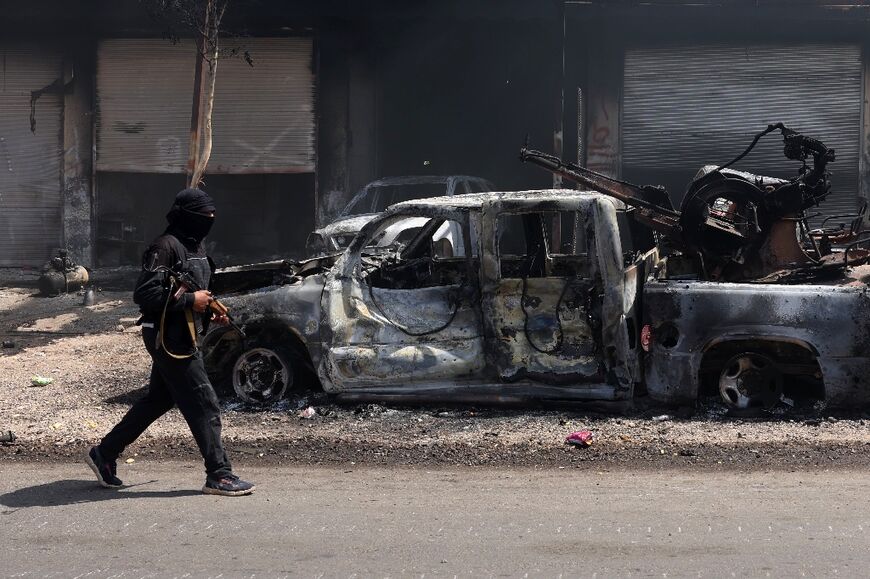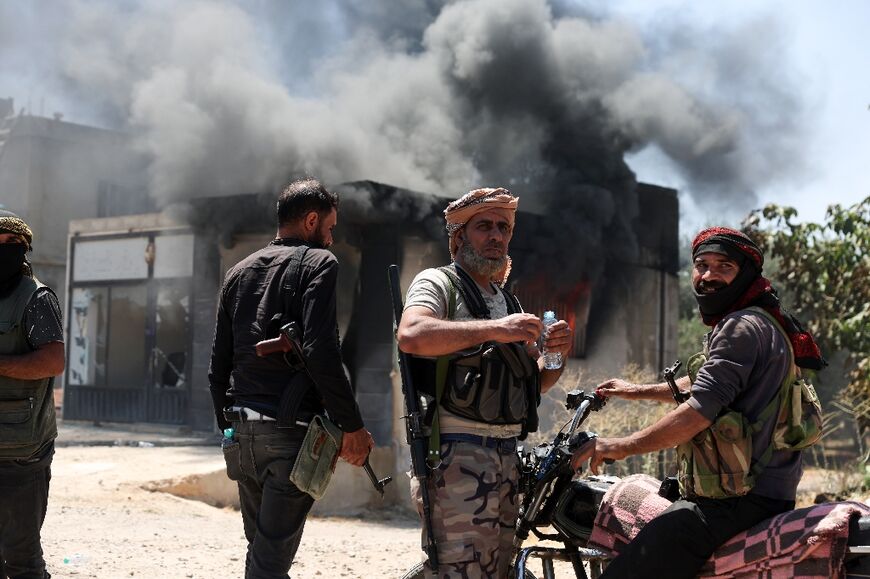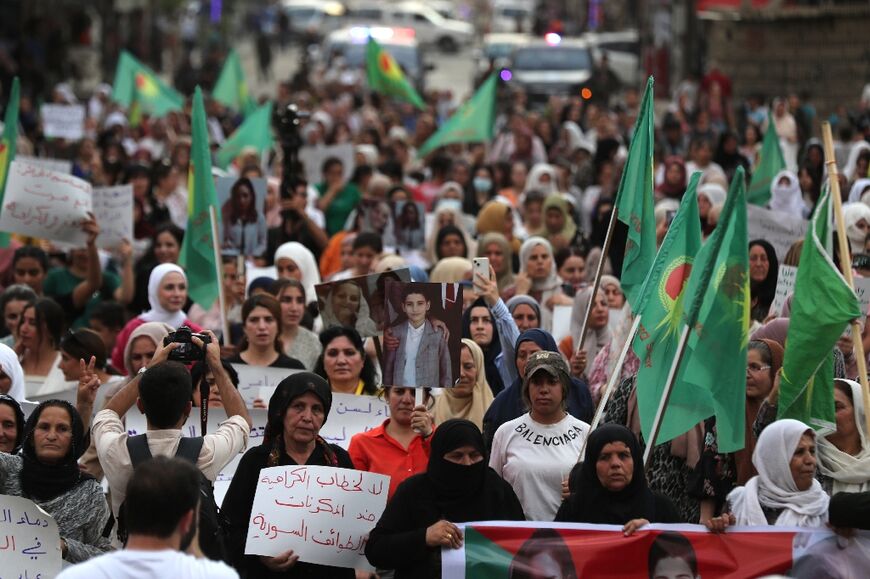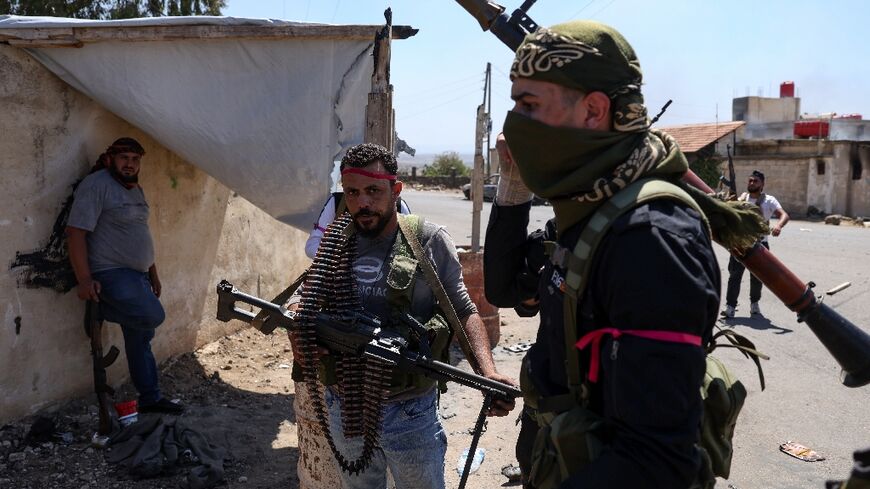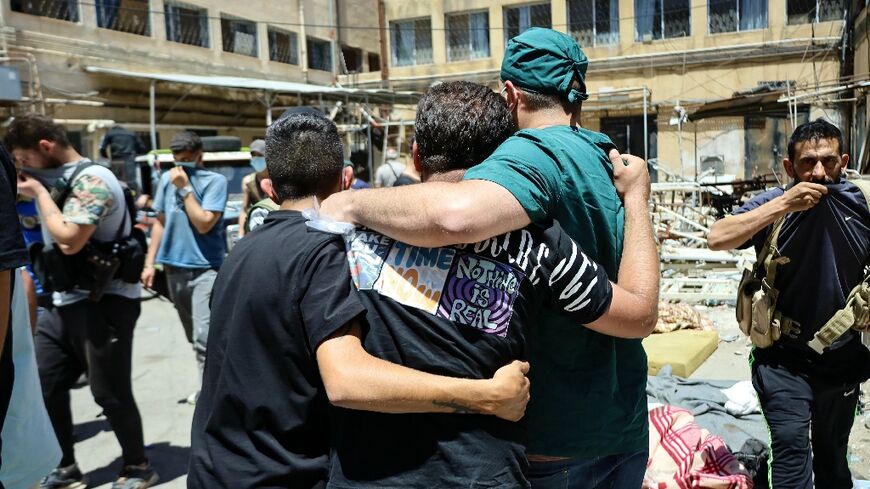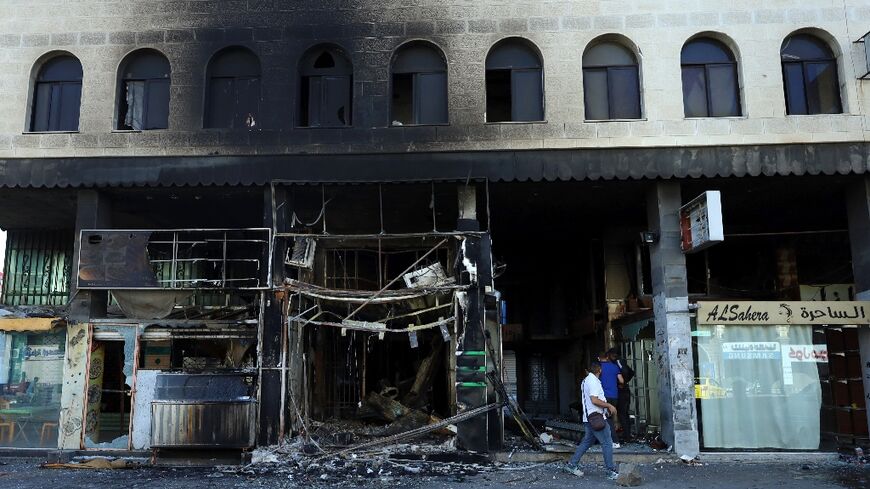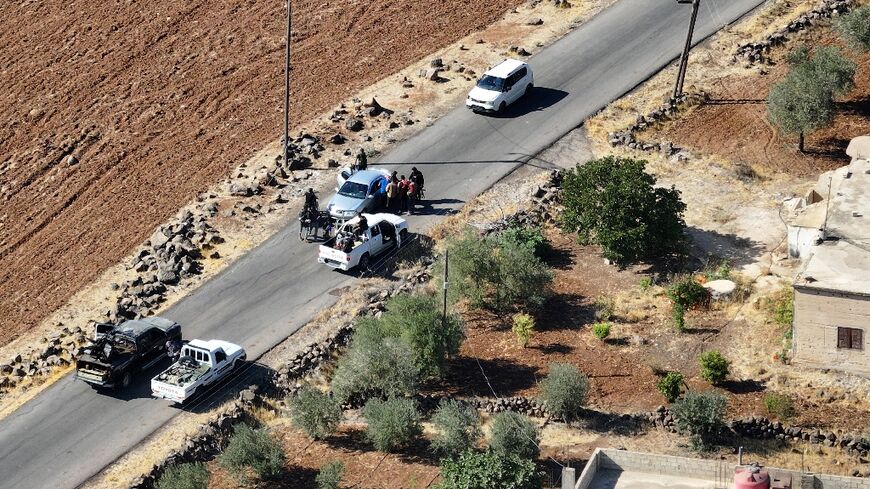New clashes rock Syria's Druze heartland as tribal fighters reinforce Bedouin
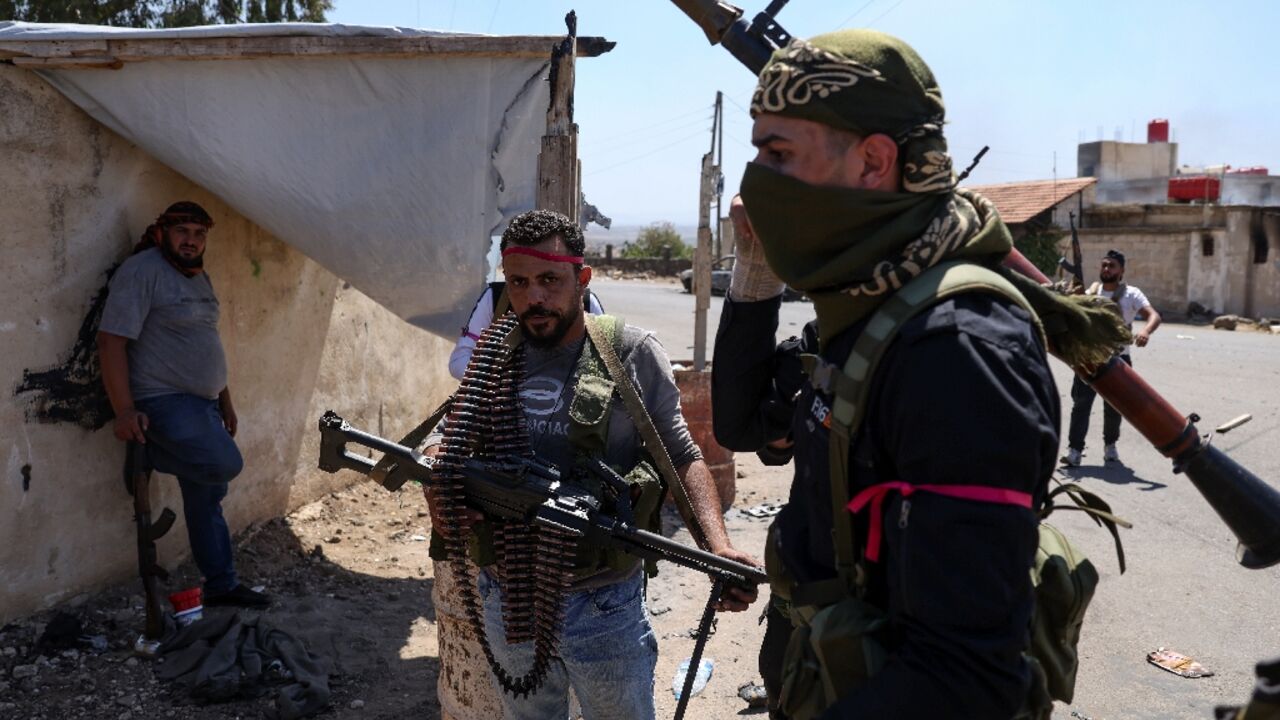
Armed tribes supported by Syria's Islamist-led government clashed with Druze fighters in the community's Sweida heartland on Friday, a day after the army withdrew under Israeli bombardment and diplomatic pressure.
The United Nations called for an end to the "bloodshed" and demanded an "independent" investigation of the violence, which has claimed at least 638 lives since Sunday, according to the Syrian Observatory for Human Rights.
The renewed fighting raised questions over the authority of interim leader Ahmed al-Sharaa, whose interim government also has difficult relations with the Kurdish and Alawite minorities.
It was Sharaa who ordered government forces to pull out, saying that mediation by the United States and others had helped avert a "large-scale escalation" with Israel.
Renewed fighting erupted Friday between Bedouin tribal factions and the Druze at the entrance to Sweida, an AFP correspondent said.
About 200 tribal fighters clashed with armed Druze men from the city using machine guns and shells, the AFP correspondent said, while the Observatory also reported fighting and "shelling on neighbourhoods in Sweida city".
In the corridors of the Sweida National Hospital, a foul odour emanated from the swollen and disfigured bodies piled up in refrigerated storage units, an AFP correspondent reported.
A small number of doctors and nurses at the hospital worked to treat the wounded arriving from the ongoing clashes, some in the hallways.
Omar Obeid, a doctor at the government hospital, told AFP that the facility has received "more than 400 bodies since Monday morning".
"There is no more room in the morgue, the bodies are in the street" in front of the hospital, added Obeid, president of the Sweida branch of the Order of Physicians.
The UN's International Organization for Migration on Friday said "79,339 people have been displaced since 13 July, including 20,019 on 17 July".
- Tribal back-up -
Tribal reinforcements from across Syria gathered in villages around Sweida on Friday to reinforce local Bedouin, whose longstanding enmity towards the Druze erupted into violence last weekend.
Anas al-Enad, a tribal chief from the central city of Hama, said he and his men had made the journey to the village of Walgha, northwest of Sweida, because "the Bedouin called for our help and we came to support them".
An AFP correspondent saw burning homes and shops in the village, now under the control of the Bedouin and their allies.
The Britain-based Observatory said "the deployment of tribal fighters to Sweida province was facilitated by government forces, because government forces are unable to deploy to Sweida under the terms of the security agreement with Israel".
Israel, which bombed the Syrian military in Sweida and Damascus earlier this week to put pressure on the government to withdraw, said Friday that it was sending aid to the Druze community in Sweida.
The two million shekel (nearly $600,000) package includes food parcels and medical supplies, the ministry said.
A ceasefire was supposed to take effect on Thursday, but Sharaa's office accused Druze fighters of violating it.
Sweida has been heavily damaged in the fighting and its mainly Druze inhabitants have been deprived of water and electricity, while communication lines have been cut.
- UN demands independent probe -
Rayan Maarouf, editor-in-chief of local news outlet Suwayda 24, said the humanitarian situation was "catastrophic".
"We cannot find milk for children," he told AFP.
UN High Commissioner for Human Rights Volker Turk called for an end to the bloodshed, saying "the protection of all people must be the utmost priority".
He demanded "independent, prompt and transparent investigations into all violations" adding that "those responsible must be held to account".
The International Committee for the Red Cross warned that "health facilities are overwhelmed, medical supplies are dwindling and power cuts are impeding the preservation of human remains in overflowing morgues".
"The humanitarian situation in Sweida is critical. People are running out of everything," said Stephan Sakalian, the head of ICRC's delegation in Syria.
"Hospitals are increasingly struggling to treat the wounded and the sick, and families are unable to bury their loved ones in dignity."
The latest violence erupted on Sunday after the kidnapping of a Druze vegetable merchant by local Bedouin triggered tit-for-tat abductions, the Britain-based Observatory said.
The Islamist-led government sent in the army, promising to put a halt to the fighting, but witnesses and the Observatory said the troops sided with the Bedouin and committed many abuses against Druze civilians as well as fighters.
The interim government has had strained relations with Syria's religious and ethnic minorities since it toppled longtime leader Bashar al-Assad in December.
This week's fighting marks the most serious outbreak of violence since government forces battled Druze fighters in Sweida province and around Damascus in April and May, leaving more than 100 people dead.
